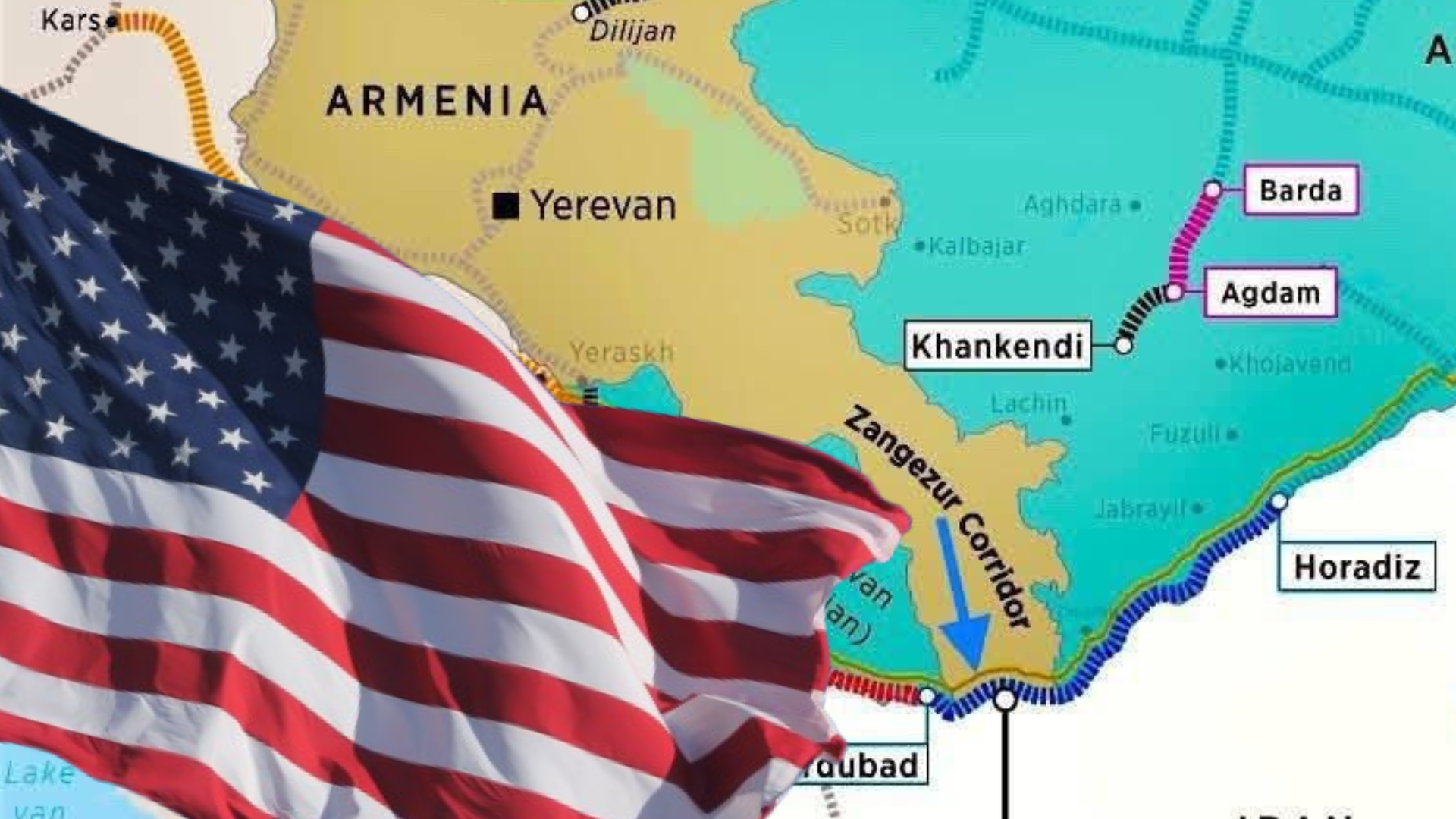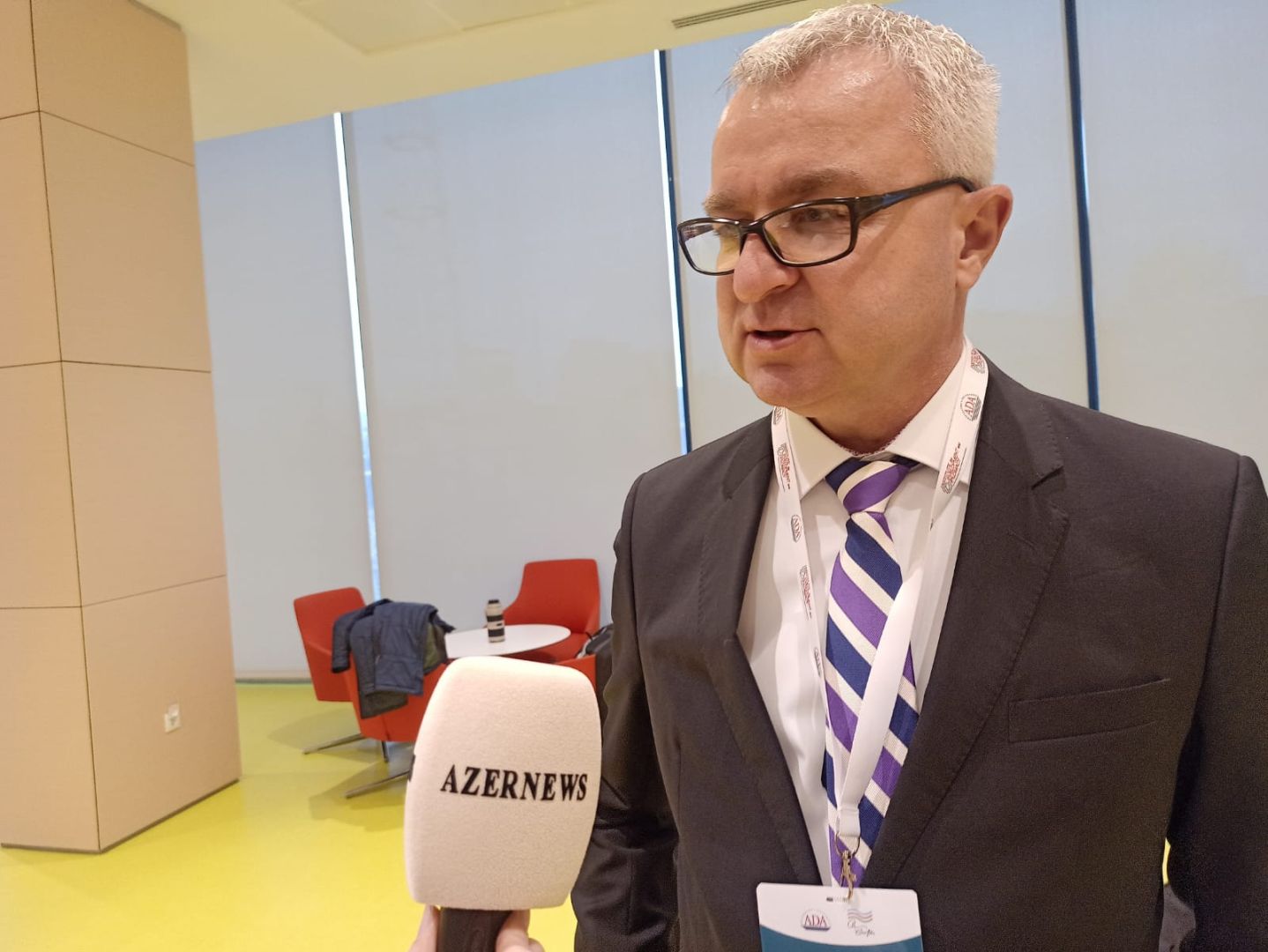Hungarian expert on Zangazur Corridor: It’s a symbol of regional realignment

As diplomatic momentum builds between Armenia and Azerbaijan, eyes are now turning to Washington, where a Joint Declaration is expected to be signed between Azerbaijani President Ilham Aliyev and Armenian Prime Minister Nikol Pashinyan, with the participation of US President Donald Trump. While not yet the signing of a comprehensive peace agreement, the declaration could mark a historic milestone in the decades-long conflict between the two South Caucasus nations.
Azerbaijan has consistently emphasised two key conditions for sustainable peace: constitutional amendments in Armenia to eliminate territorial claims against Azerbaijan, and the establishment of unimpeded overland access to the Nakhchivan Autonomous Republic, often referred to as the Zangazur Corridor.

To better understand the implications of these developments, we spoke with Prof. László Vasa, Chief Advisor and Senior Research Fellow at the Hungarian Institute of International Affairs, and Professor at Széchenyi István University, Hungary.
Asked about the potential impact of Armenia amending its constitution — one of Baku’s key demands — László described the move as a critical confidence-building step. He said that while the expected declaration in Washington would not yet mark the conclusion of a peace agreement, it signals substantial progress toward normalising relations between the two nations.
“If Armenia undertakes the constitutional reform requested by Azerbaijan,” László noted, “bilateral relations would likely enter a new phase.”
He explained that removing constitutional references to territorial claims could unlock a number of short-term initiatives: accelerated border delimitation and demarcation, the restoration of transport links, and even the launch of reciprocal consular services. There would also be room for humanitarian cooperation, including demining efforts and resolving the issue of missing persons from past conflicts.
Beyond the symbolic value, the expert emphasised practical benefits. According to him, both countries could begin exploring mutually beneficial trade and transit arrangements, particularly in the context of the Middle Corridor — the transcontinental trade route connecting Central Asia to Europe via the South Caucasus. Selective energy cooperation might also become possible, including power-swapping arrangements through Georgia and Turkiye.
However, he warned that this process would be fragile. László pointed to risks such as domestic backlash in Armenia, sequencing disputes over which side should take the first step, and possible interference from external actors who may see peace as a threat to their regional influence.
Despite these concerns, he believes that constitutional reform would be a strategic shift, moving the countries away from “existential hostility” and toward what he called “managed competition” and selective cooperation.
Turning to Azerbaijan’s other condition - the establishment of uninterrupted overland access to Nakhchivan via the Zangezur Corridor - László described the project as both economically vital and symbolically charged, as it would create the direct land connection between mainland Azerbaijan and Nakhchivan.
“The proposed Zangazur Corridor - more accurately described as a transit route through southern Armenia under Armenian jurisdiction with international guarantees - could yield significant benefits,” he said.
According to him, this connection would help Azerbaijan shorten transport times, reduce logistics costs, and lessen its dependence on single-country transit routes. It would also contribute to better integrating Nakhchivan into Azerbaijan’s national economy. László pointed out that developing alternative routes like the Araz Corridor through Iran would further enhance Baku’s strategic resilience.
On a regional scale, he noted that the corridor would serve a broader function. “For the region, the corridor would complete a critical missing link in the Middle Corridor trade route from Central Asia to Europe via the South Caucasus and Turkiye,” he said.
He added that this kind of enhanced connectivity could attract investment in logistics, light manufacturing, and energy infrastructure. Additionally, the corridor could be used to lay fiber-optic cables and power transmission lines - boosting the region’s digital and energy security.
From a geopolitical standpoint, László argued that the corridor could significantly increase Turkiye’s role as a western gateway. At the same time, it might push Armenia to recalibrate its regional approach and would raise the political cost of renewed conflict for all sides involved.
Still, he cautioned that practical implementation would not be simple. Insurance companies, lenders, and investors, he said, would require firm legal guarantees, credible international monitoring, and assurance of uninterrupted access before making major commitments.
Finally, László stressed the symbolic importance of the corridor for the Turkic world.
“The Zangezur Corridor has enormous practical and symbolic significance,” he said. “After all, it would be the only land corridor that unites the entire Turkic world — that is, it provides an indirect connection between Turkiye and the Turkic countries.”
Section 907: A U.S.–Azerbaijan reset?
The emerging peace agreement also involves the issue of Section 907 of the U.S. Freedom Support Act, which since 1992 has prohibited direct U.S. government assistance to Azerbaijan. Although waivers have been granted in recent years, how might the outright repeal of Section 907 affect Azerbaijan–U.S. relations going forward?
László explained that the repeal of Section 907 would be both symbolically and practically significant for Azerbaijan. While waivers have allowed some flexibility, removing the restriction entirely would open the door to broader U.S. economic and security assistance.
He pointed out that this could include programs focused on maritime security, border control, infrastructure development, and digital connectivity. In addition, repeal would allow expanded use of U.S. development finance and export credit tools in Azerbaijan, especially in sectors linked to the Middle Corridor and the ongoing energy transition.
“Strategically, repeal would institutionalise a closer partnership, reduce the bureaucratic friction of annual waivers, and signal long-term U.S. commitment,” he said.
However, László cautioned that closer cooperation would likely come with political conditions.
“Increased cooperation would likely require progress in governance, human rights, and regional stability,” he noted.
He also emphasised the continued influence of US domestic politics, particularly the roles of diaspora groups and congressional attitudes, as factors shaping this relationship.
Even if repeal does not happen immediately, he said, targeted cooperation could still expand. But repeal, he stressed, would bring greater predictability and credibility to US-Azerbaijan ties.
Expert Vasa László sees these negotiations not just as a diplomatic milestone, but as a rare chance to redefine the political landscape of the South Caucasus.
He believes that constitutional change in Armenia could end decades of legal confrontation and open a path to practical engagement. The Zangazur Corridor, if realised, could bring sweeping economic and strategic benefits not just for Azerbaijan, but for the region as a whole. And the repeal of Section 907 could help consolidate a long-term partnership between Azerbaijan and the United States, counterbalancing other powers vying for influence in the region.
Yet the success of all three developments will depend on credible implementation, sequencing of commitments, and above all, political will -- not just from Baku and Yerevan, but from Washington and other influential capitals.
Here we are to serve you with news right now. It does not cost much, but worth your attention.
Choose to support open, independent, quality journalism and subscribe on a monthly basis.
By subscribing to our online newspaper, you can have full digital access to all news, analysis, and much more.
You can also follow AzerNEWS on Twitter @AzerNewsAz or Facebook @AzerNewsNewspaper
Thank you!

